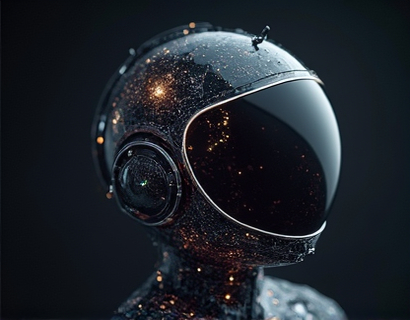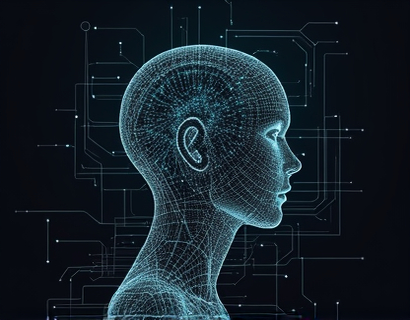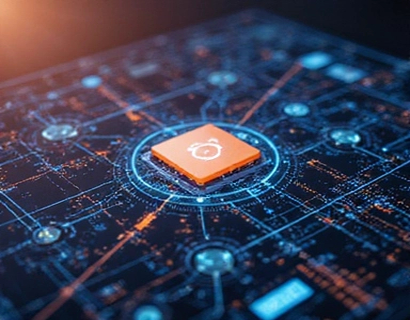Personalized AI Companions: Transforming Childhood Creativity and Emotional Well-Being Through Interactive Digital Friends
In an era where technology increasingly intertwines with daily life, the concept of personalized AI companions for children is emerging as a transformative force in childhood development. These digital entities, designed to interact and evolve with individual children, offer a unique blend of creativity, emotional support, and educational value. By personalizing the experience, AI-driven imaginary friends create a safe and imaginative space for children to explore, learn, and grow.
Enhancing Creativity Through Personalized Interactions
One of the most significant benefits of personalized AI companions is their ability to boost a child's creativity. Unlike traditional toys or media, these AI entities adapt to the child's interests, preferences, and skill levels, providing a tailored experience that encourages imaginative play. For instance, a child interested in dinosaurs might engage in a conversation with an AI companion that knows the names of various species, their habitats, and fascinating facts, sparking the child's curiosity and creativity.
The personalized nature of these interactions ensures that the content remains fresh and engaging. The AI system continuously learns from the child's responses and behaviors, adjusting the narrative, challenges, and activities to maintain an optimal level of difficulty and interest. This dynamic approach not only keeps the child engaged but also fosters a deeper sense of creativity as they explore new ideas and solutions within the interactive environment.
Supporting Emotional Well-Being
Beyond creativity, personalized AI companions play a crucial role in supporting children's emotional well-being. These digital friends provide a consistent and non-judgmental presence, offering a safe space for children to express their feelings and thoughts. The AI's ability to understand and respond to emotional cues helps children develop emotional intelligence and resilience.
For example, if a child is feeling sad or anxious, the AI companion can initiate a conversation about these feelings, offering reassurance and guidance. The AI might suggest activities or games designed to help the child process and manage their emotions, such as creating a story where the AI character overcomes a similar challenge. This interactive approach not only validates the child's emotions but also equips them with coping strategies.
Fostering Social Skills Development
Interacting with personalized AI companions also aids in the development of social skills. Through role-playing scenarios and interactive dialogues, children can practice communication, empathy, and cooperation. The AI can simulate various social situations, allowing children to experiment with different responses and outcomes in a controlled and safe environment.
For instance, the AI might present a scenario where a friend is upset and needs comfort. The child can choose how to respond, and the AI will provide feedback on the effectiveness of their choice. This process helps children understand social norms and expectations, enhancing their ability to navigate real-world social interactions. The personalized feedback loop ensures that the learning experience is tailored to the child's current social skill level, promoting continuous growth and improvement.
Creating a Safe Space for Self-Expression
The interactive nature of personalized AI companions provides a unique platform for children to explore and express their thoughts and feelings without fear of judgment. This safe space is particularly valuable in today's fast-paced world, where children often feel pressured to conform to certain standards or expectations.
Through creative storytelling, art, and other forms of expression, children can delve into their inner world and bring their ideas to life. The AI companion acts as a collaborative partner, offering suggestions and encouragement while respecting the child's autonomy. This environment fosters a sense of confidence and self-worth, as children see their ideas come to fruition and receive positive reinforcement.
Technological Advancements in AI Companions
The development of personalized AI companions has been driven by significant advancements in artificial intelligence and machine learning. Natural Language Processing (NLP) technologies enable these AI entities to understand and generate human-like text, making conversations more natural and engaging. Machine learning algorithms allow the AI to learn from interactions, improving its responses and adapting to the child's unique personality over time.
Additionally, emotional intelligence in AI has seen remarkable progress, with systems capable of recognizing and responding to emotional cues through voice tone, text analysis, and even facial recognition in video interactions. These advancements ensure that the AI companion can provide a more empathetic and supportive presence, enhancing the overall experience for the child.
Parental Involvement and Oversight
While personalized AI companions offer numerous benefits, it is essential for parents and guardians to remain involved and informed. The interactive platform provides tools for parents to monitor progress, set boundaries, and adjust settings to align with their values and concerns. This level of oversight ensures that the experience remains positive and beneficial, while also addressing any potential issues that may arise.
Parents can review the child's interactions, see the topics discussed, and receive insights into their child's emotional state and social skill development. This transparency builds trust and allows for a collaborative approach to the child's digital experiences, ensuring that technology complements rather than replaces traditional parenting.
Conclusion
Personalized AI companions represent a groundbreaking approach to childhood development, combining the benefits of creativity, emotional support, and social skill development in a safe and engaging digital environment. By personalizing the experience to each child's unique needs and interests, these AI entities offer a powerful tool for parents and educators aiming to enhance a child's overall well-being and growth. As technology continues to evolve, the potential for AI companions to positively impact childhood continues to expand, opening new avenues for innovative and effective learning and development.











































